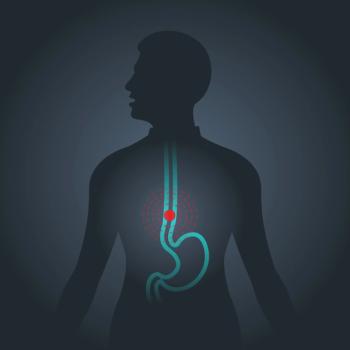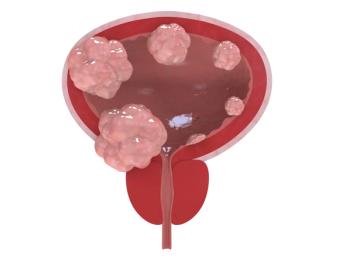
Among patients with NPM1-mutated and KMT2A-rearranged disease, respectively, the ORR was 65% and 41% in the phase 1 KOMET-007 trial.

Your AI-Trained Oncology Knowledge Connection!


Among patients with NPM1-mutated and KMT2A-rearranged disease, respectively, the ORR was 65% and 41% in the phase 1 KOMET-007 trial.

The FDA approved pirtobrutinib as a treatment for patients with CLL/SLL who received prior BTK inhibition based on the phase 3 BRUIN-CLL-321 trial results.

Among patients with an HLA-locus match level of less than 7, the rates of relapse and GVHD were similar to those with an HLA match level of 7.

The safety profile of nadunolimab in patients with triple-negative breast cancer was consistent with its known profile, and no significant signals emerged.

Developers have outlined plans to initiate a randomized phase 2 trial evaluating silevertinib in patients with newly diagnosed glioblastoma.

In a spotlight session at the Chemotherapy Foundation Symposium, Anne Chiang, MD, PhD, covered developments in the field of LS-SCLC.

A 6-month CR rate of 62% was observed with detalimogene voraplasmid in treating patients with BCG-unresponsive non–muscle invasive bladder cancer.

Results from the phase 1b ENGAGER-PSMA-01 trial showed deep PSA reductions and a favorable CRS profile among patients with taxane-naive CRPC.

The developers plan to submit a new drug application to regulatory authorities for JS001sc for the treatment of first-line nonsquamous NSCLC.

Thomas Hope, MD, asserts that legislation aimed at resolving infiltration-related AEs does not address any relevant clinical issue.

The regulatory decision was supported by findings from the phase 1/2 BGB-11417-201 trial, which evaluated sonrotoclax monotherapy in those with MCL.

Although both immune priming strategies numerically improved ORR and PFS vs olaparib monotherapy, the study was not powered for comparisons between arms.

No dose-limiting toxicities were observed among 12 patients with advanced EGFR-mutated NSCLC treated with quaratusugene ozeplasmid and osimertinib.

The blood-based test detected 31% of lung cancers one year prior to in-trial diagnosis compared with 8% of cancers identified by low-dose CT or Lung-RADS.

The regulatory decision regarding the subcutaneous pembrolizumab formulation is based on results from the phase 3 3475A-D77 trial.

According to the developers, giredestrant is the first oral SERD to display beneficial DFS in early-stage breast cancer in the adjuvant setting.

Efficacy data from the phase 3 EPCORE FL-1 trial evaluating epcoritamab plus rituximab and lenalidomide in this population support the FDA’s decision.


The safety profile of zanidatamab plus chemotherapy with or without tislelizumab was consistent with the known profiles of each individual agent.

Although the study was underpowered due to a small sample size, nonsignificant improvements in functional and social well-being occurred with MOST-S26.

The EGFR/HER3 bispecific ADC is being evaluated in an open-label phase 1/2 study to assess its safety, tolerability, and activity in advanced solid tumors.

Clinical data from the phase 1b/2 KOMET-001 trial support the agency’s approval of ziftomenib in this patient population.

Establishing guideline harmonization and practice standardization may help promote the safe and consistent delivery of radiopharmaceutical therapies.

Most patients with BCG-unresponsive NMIBC treated with detalimogene voraplasmid did not experience TRAEs, and only 1.6% experienced dose interruptions.

Micheal C. Soulen, MD, spoke about his presentation on the CapTemY90 trial at the 2025 NANETS Multidisciplinary NET Medical Symposium.

The FDA agreed that data from the UTOPIA trial, with UGN-103 demonstrating a 77.8% 3-month CR rate in patients with LG-IR-NMIBC, support an NDA submission.

Topline data are expected to be available in the first half of 2026 after the submission of results for presentation at a medical conference.

Improvements in safety were observed without compromising efficacy after non-myeloablative lymphodepletion was reduced in this NSCLC population.

Considering historical trends of underpowered data in NET surgical studies, CUTNETs established a collaboration of surgical teams to better power research.

The glofitamab-based regimen displayed manageable safety, with minimal high-grade CRS and infrequent low-grade ICANS, in relapsed/refractory LBCL.